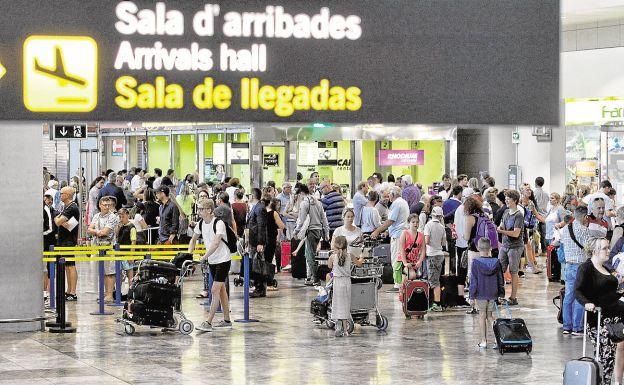On Wednesday afternoon, Carlos Mazón met with Laura Navarro, director of the Alicante-Elche Miguel Hernández airport; Juan Alberto Martín, head of AENA’s customer relations division, and José Francisco Mancebo, director of the Costablanca Board of Trustees, discuss air connectivity in Alicante next summer.
If there are no unpleasant surprises with the pandemic, the provincial president said, “we expect to channel15 million travellers through the airport.”
“We are in direct communication with the British market, which is essential for us” and we will be “strengthening a strategy that we were carrying out before the pandemic”, such as “expanding our great relationship with Scandinavian tourism”, Mazón said.
He stated that tourism from Norway, Sweden and Finland is also “very important”, that Iceland has been “conquered” adding that all of them now have direct flights. Mazón also referred to the eastern bloc countries, where connectivity with Russia and its satellites is expanding “very well”, which “is great news as we face a summer campaign with a lot of support also from Easter”. He said that people want to come to the Costa Blanca, Benidorm, Torrevieja, Alicante, Dénia, Calp, Jávea, and Santa Pola.

The fact that there are a total of 300,000 international residents in the province of Alicante, mostly British, French, Russian and Norwegian, means that transport has got to be in line with their needs also, “since they are our great ambassadors who can tell their friends and families how well people live here,” he said.
“We are beginning to be very optimistic, because we are also initiating conversations in other ideas that can make us grow in a very interesting German market. As a result, the Costa Blanca could be much more diversified and could also be expanded on a large scale,” Mazón added.
He said there are more airlines “with which we are beginning to negotiate so that they have a base in Alicante” predicting that “we are very close to providing a base for two or three new airlines” at the Alicante airport. All this, he said, “thinking about that market in Eastern Europe and the German market, so that we can better diversify and not only have the British monoculture.”





